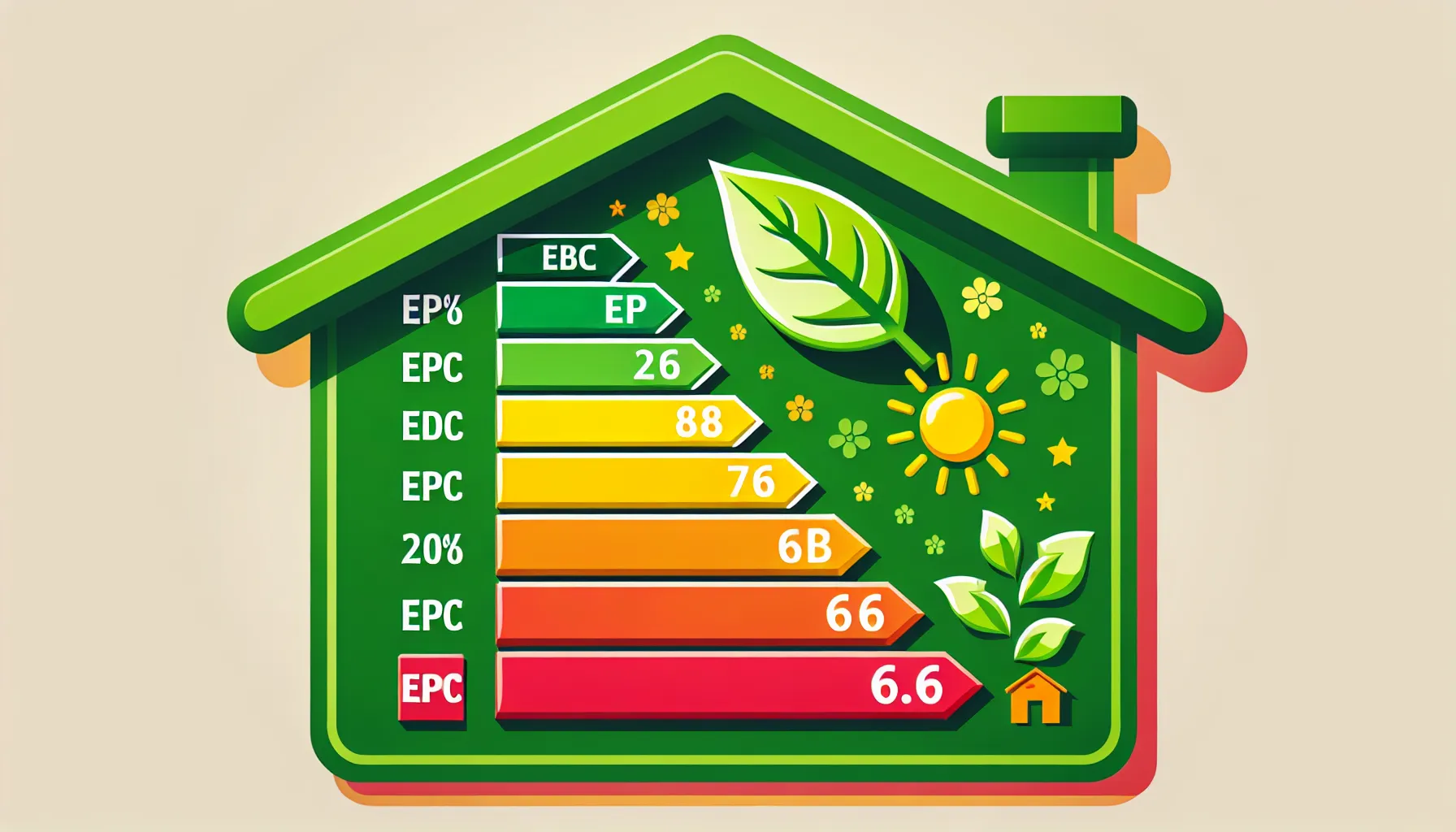EPC Rating: Unveiling the Energy Efficiency Secret

When it comes to property transactions in the UK, do you ever wonder about the hidden details that might affect your decision? Let’s talk about EPC rating, a crucial yet often overlooked aspect of buying, selling, or renting a property. Understanding this rating can save you from unexpected costs and help you make more informed choices. So, what exactly is an EPC rating, and why should you care?
What is an EPC Rating?
An Energy Performance Certificate (EPC) provides a measure of how energy-efficient a building is. Buildings are rated on a scale from A (very efficient) to G (inefficient), and these ratings offer insights into the potential energy costs and carbon emissions. Not just a colorful chart, it guides you on enhancing a property’s energy efficiency.
Why EPCs Matter
Considering an EPC isn’t just for property geeks. It impacts your wallet and the planet. A higher EPC rating means lower energy bills and a smaller carbon footprint. Isn’t that something we all want? Let’s dig deeper into the various facets of EPC ratings and their importance.
The EPC Rating Process
How to Obtain an EPC
Securing an EPC involves hiring an accredited domestic energy assessor. They’ll evaluate the property and provide a detailed report. Here’s a quick rundown of the process:
- Assessment Booking: Contact a certified assessor.
- Property Inspection: The assessor checks insulation, heating systems, and more.
- Report Generation: You receive a detailed EPC with recommendations.
| Property Type | Cost Range (£) |
|---|---|
| Flat | 60 – 85 |
| Detached House | 100 – 120 |
| Commercial Building | 150 – 200 |
Reading Your EPC
Understanding your EPC is like decoding a treasure map. It highlights current and potential ratings and suggests improvements. Implementing these can elevate your property’s value and efficiency.
Benefits of a Good EPC Rating
Financial Savings
Imagine slashing your energy bills with simple upgrades. A better EPC rating means you’re not just saving energy; you’re saving money. Over time, these savings can accumulate significantly.
Environmental Impact
Every small action counts in the fight against climate change. Opting for properties with higher EPC ratings means contributing to a greener planet. Think of it as your eco-friendly badge of honor.
Market Appeal
Properties with high EPC ratings are more attractive to buyers and renters. It’s like having a golden ticket in the competitive real estate market. Who wouldn’t want to live in a home that’s both cost-effective and sustainable?
Improving Your EPC Rating
Quick Tips for Enhancement
- Insulation: Ensure your loft and walls are well-insulated.
- Efficient Heating: Upgrade to a modern boiler or heating system.
- Renewable Energy: Consider solar panels or heat pumps.
Long-term Strategies
Transforming your property into an energy-efficient haven can be a long-term project. Start with small changes and gradually move to bigger investments like renewable energy installations.
AnySqft: Simplifying Your Property Journey
Navigating the property market can be daunting. That’s where AnySqft comes in. Our AI-driven platform offers personalized guidance, making buying, selling, and renting properties as smooth as butter. With market insights and expert connections, we ensure your real estate journey is efficient and informed.
Conclusion
In the realm of property transactions, EPC rating is a powerful tool. It not only influences financial and environmental aspects but also enriches your property’s appeal. By understanding and improving EPC ratings, you can make smarter, greener choices. So next time you’re on the property hunt, remember to check the EPC—it might just be the key to your dream home.
EPC Rating
An Energy Performance Certificate (EPC) measures a property’s energy efficiency, rated from A (most efficient) to G (least efficient). Understanding EPC ratings is essential for:
- Cost Savings: Higher ratings usually mean lower energy bills.
- Environmental Impact: Efficient homes contribute to reduced carbon emissions.
- Market Value: Properties with good EPC ratings attract more buyers.
Why It Matters
- Current and Potential Ratings: Shows how energy-efficient a home is now and what it could be.
- Improvement Recommendations: Lists actionable steps to enhance efficiency.
For expert guidance on navigating EPC ratings, visit AnySqft to streamline your property journey!